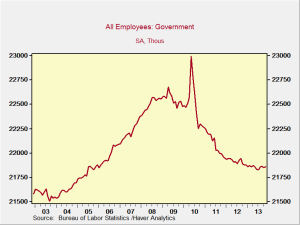Over the past couple of days, we’ve seen the market pop (on Friday), drop (on Monday), and pop again (yesterday). Admittedly, there was some news there—the Russian invasion of the Crimea over the weekend—but still, pop/drop/pop seems a bit strange.
I was talking with a reporter the other day who asked me a very reasonable question: “Is there a rational reason for all this activity?” He clearly didn’t think so, and while I certainly saw his point, I took the side of a rational market: given the Russian invasion, it clearly made sense to take risk off the table, and then (in theory) to move back in when it seemed the invasion was over. In the short term, you can make a reasonable case that the market response was rational.












